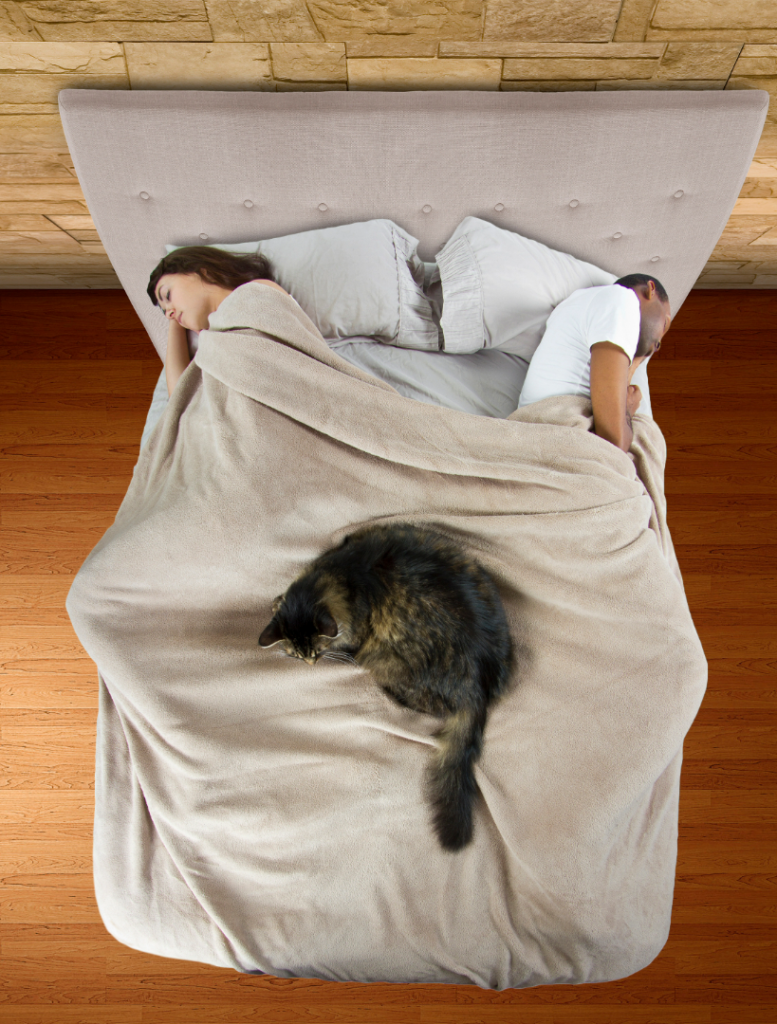
Many cat owners ponder why their feline companions often opt for the foot of the bed as their preferred resting spot. Despite the common belief that cats are aloof and selective about affection, those who truly know and love cats often have a different experience. The stereotype of a cold and self-absorbed cat is frequently contradicted by the affectionate and social behaviors exhibited by our furry friends.
Even if your cat doesn’t overtly seek attention, their desire to be in close proximity to you is often evident. This suggests a social inclination, indicating their preference for companionship. Whether they’re kneading biscuits on your lap, weaving between your feet as you move about the house, or simply at ease in your presence, cats often exhibit behaviors that signify their attachment to their human companions.
Affection Manifestations in Cats
The level of affection varies widely among cats. For instance, my own blue silver Maine Coon named Big Ben relishes belly rubs while lying on his back—an activity that might prompt discomfort or resistance in many cats, but brings him immense joy. To him, there’s no greater expression of affection, and he eagerly seeks it out.
Additionally, Big Ben enjoys sleeping at the foot of the bed, a habit that, given his 26-pound frame, can make it feel like sharing a bed with a toddler. On chilly nights, when we employ an electric blanket, all the cats invariably gravitate to the bed, resulting in a collective weight of over 90 pounds—an unexpected challenge when trying to recover the covers.
Debating the Reasons Behind Cats’ Behavior
There’s ongoing debate regarding why Maine Coons, in particular, seem to gravitate towards their owners. Is it simply a territorial instinct, or do they genuinely bond with their human counterparts? This dichotomy echoes the age-old debate between nature and nurture, with two primary schools of thought emerging.
The first perspective posits that cats set the rules, often reshaping household dynamics to suit their preferences or needs. Frequently, it’s observed that cats assert dominance over other animals and even some humans, claiming various resources such as beds, food, and attention as their own. In essence, the cat becomes the de facto ruler of the household, dictating the terms of interaction and asserting their authority.
However, another interpretation suggests that cats’ behaviors are driven by affection rather than dominance. In this view, cats seek proximity to their owners out of a genuine desire for companionship and affection. By choosing to sleep at the foot of the bed, cats express their love and trust, as they feel safe and secure in the presence of their owners.
Understanding Cats’ Vulnerability While Sleeping
It’s essential to recognize that cats are most vulnerable when asleep, a vulnerability rooted in their instinctual survival mechanisms. In the wild, cats seek secluded and secure locations to rest, minimizing the risk of ambush or predation during sleep. However, in domestic settings, cats perceive their human guardians as protectors, providing food, shelter, and companionship. Consequently, they feel most secure when sleeping in close proximity to their owners, relying on their presence for safety and reassurance.
The foot of the bed offers an ideal compromise, providing cats with a sense of security and closeness while preserving their independence. This location allows cats to remain close to their trusted owners while maintaining a degree of autonomy—a balance that satisfies their need for both comfort and security.
In essence, when your feline companion curls up at the foot of your bed, it’s a profound expression of love and trust. Whether motivated by affection, security, or sheer comfort, their choice of sleeping spot underscores the bond between cat and owner—a bond built on mutual trust and companionship.
Ultimately, if you find yourself sharing your bed with a furry feline friend—or perhaps several—it may be time to consider investing in a larger bed. As a Maine Coon owner myself, I can attest to the space-consuming habits of these majestic creatures, whose presence in bed can rival that of a small child.

